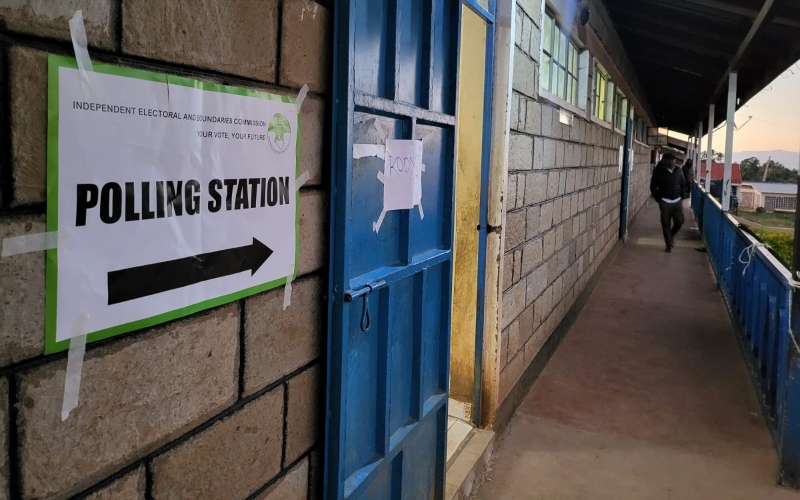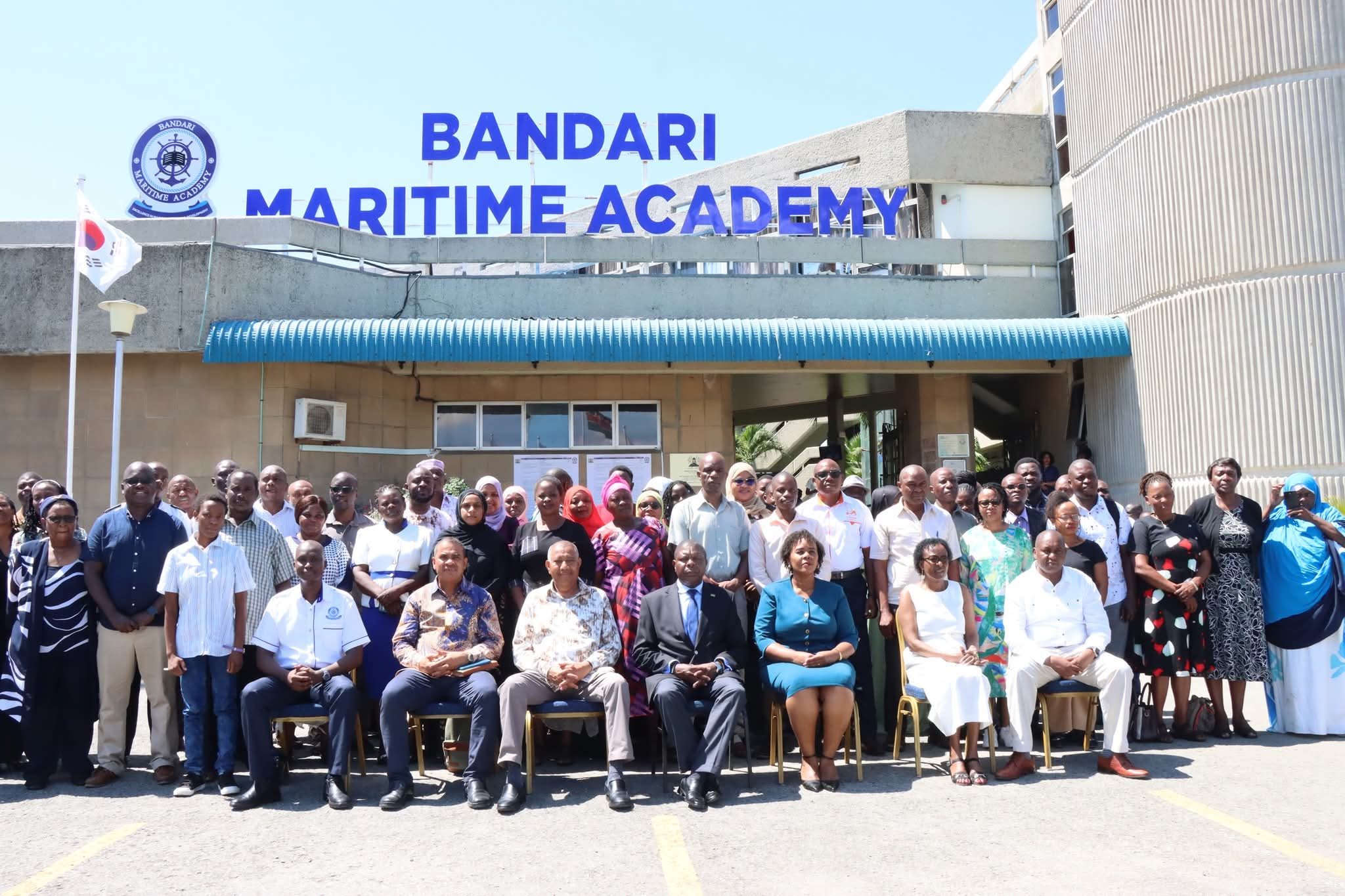Rendille community sets up cultural village to preserve their heritage
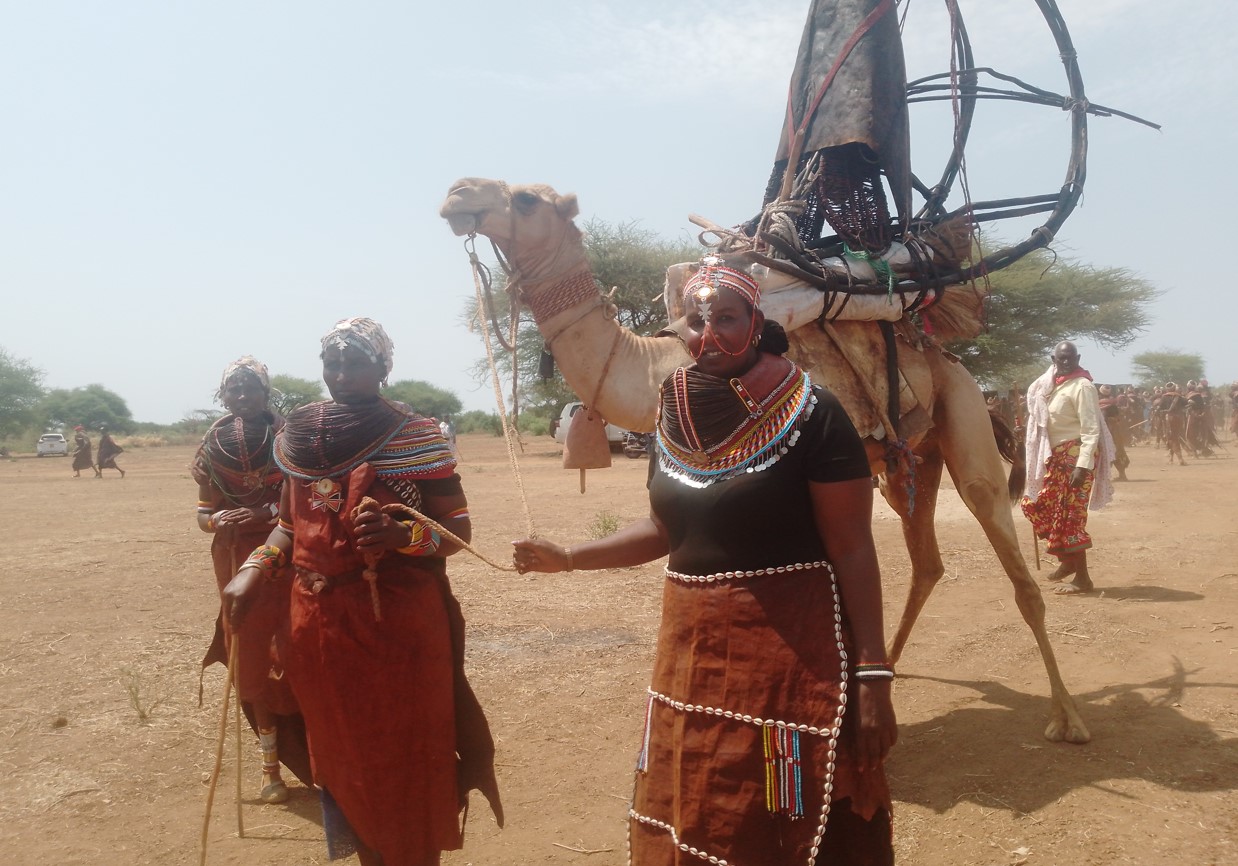
Nine huts representing the tribe's mine clans of Rongumo, Urowen, Sale, Dispahai, Garteilan, Otola, Tupsha, Lukumai/Nahgan and Matarbah have been erected at the centre resting on about three-acre land.
The Rendille community whose language and culture remain under immense threat due to assimilation into other 'dominant' cultures has rolled out efforts to revitalise and protect their heritage against possible extinction.
The Cushite-speaking community originated from Ethiopia before migrating South into Kenya following incessant conflicts with Oromos over pastures and water for their animals and currently inhabit parts of Marsabit County and Lake Turkana areas.
Their rich culture has largely been influenced by the 'dominant' Samburu culture, due to intermarriage between the two communities.
The community's Ariaal clan of mixed Nilotic and Cushitic descent who speak the Eastern Nilotic Samburu language has also contributed to the erosion of some aspects of Rendille culture.
The erosion is so dire, especially to their language which is largely spoken by a small population living in the Kargi and Korr areas.
Urbanisation which drives young people to towns to pursue education and search for jobs has also had a toll on their traditions.
A cultural village at Logologo where people will visit to learn about their culture was commissioned Saturday during the closure of this year's Food and Cultural festival which offered thousands of attendees an opportunity to have a taste of Rendille culture.
Nine huts representing the tribe's mine clans of Rongumo, Urowen, Sale, Dispahai, Garteilan, Otola, Tupsha, Lukumai/Nahgan and Matarbah have been erected at the centre resting on about three-acre land.
The programme being undertaken by the community with support from the Pastoralist People's Initiative also entails documentation of tangible and intangible cultural elements such as traditional skills and knowledge about health which has been forgotten.
Embrace dynamism
Nakiloi Bagajo said while it was crucial to embrace dynamism, abandoning one's culture amounted to losing their identity, further hitting young people for losing grip of their culture.
"Culture offers us a sense of belonging and identity and must be protected at all costs through collective responsibility," she said.
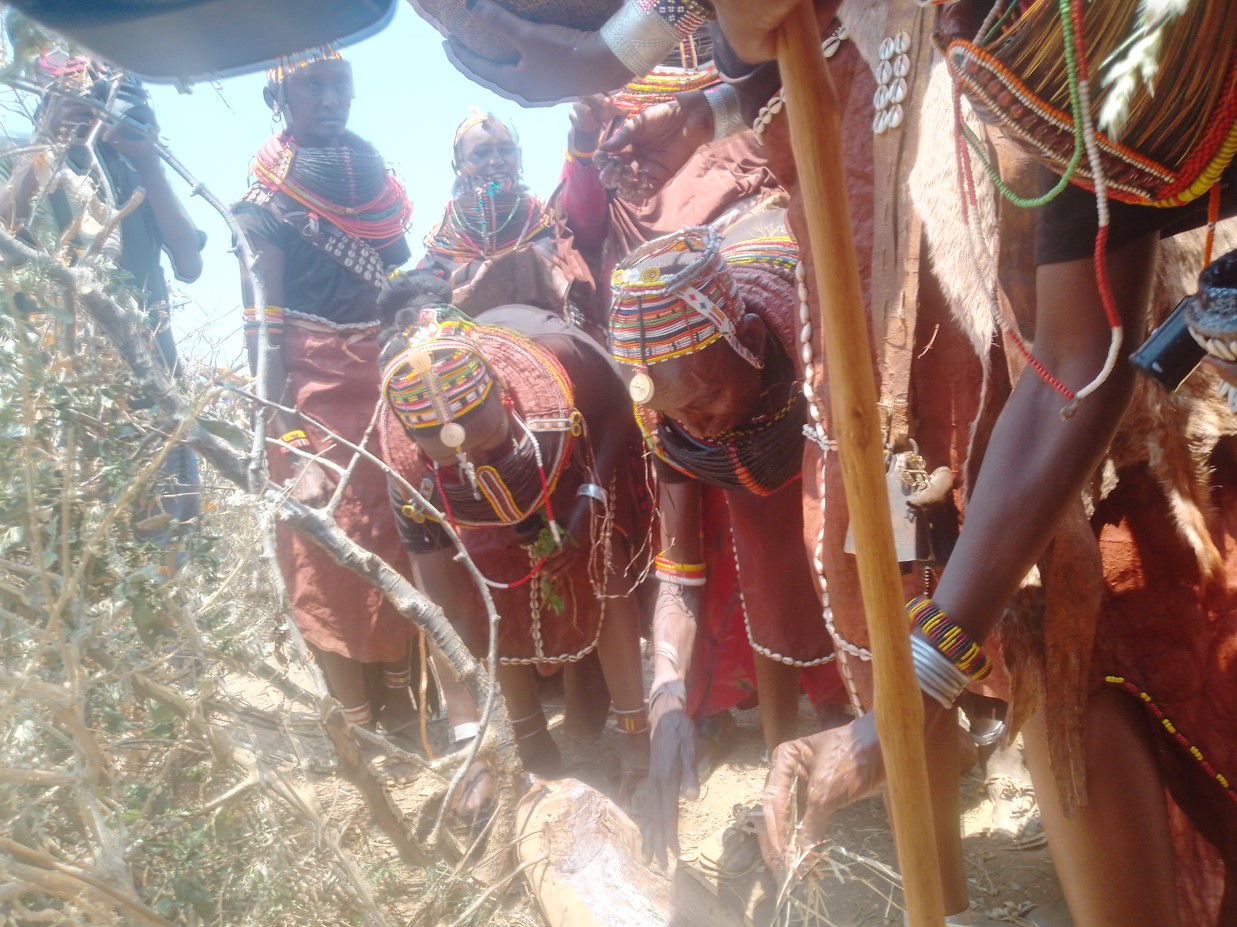 A section of Rendille women demonstrating a traditional ritual (bathing in camel milk) that they believe offers healing from various forms of illnesses at Loglogo in Marsabit on August 24, 2024. (Photo: Waweru Wairimu)
A section of Rendille women demonstrating a traditional ritual (bathing in camel milk) that they believe offers healing from various forms of illnesses at Loglogo in Marsabit on August 24, 2024. (Photo: Waweru Wairimu)
She cited their unique dressing and traditional delicacies among the things that the young generation had abandoned due to technology.
"You will hardly see a young lady wearing a dress made from animal skin which we decorate using beads and other ornaments such as shells and the majority no longer appreciate our staple food," Nakiloi said.
Commonly referred to as holders of the stick of God and of a semi-nomadic lifestyle, the Rendilles' staple food (Banjo) comprises a mixture of camel meat, milk and blood.
They also take boiled maize mixed with milk and sheep fat.
The community consider the camel as the most essential animal due to its adaptation to the arid environment and as a mode of transport though they also rear goats and sheep.
Hawo Kochale blamed non-adherence to traditional foods including medicinal herbs for rising cases of ailments in children.
"None of our children had flu or got sick while growing up because the food we gave them boosted their immunity," the mother of three said.
Traditional rites of passage and sex separation during cultural and religious ceremonies are among the elements that remain at risk due to infiltration by other cultures.
Male circumcision (Murrugatta) is done every 14 years, transiting men into adulthood as warriors (Morans) who are tasked with among others protecting their communities.
The Morans put on distinctive visor-like hairstyles, dyed with red ochre.
Mary Resilan underscored the need for the preservation of the community's rich cultural heritage for the benefit of current and future generations.
Local elder Mark Segelal said it would not harm the young people speaking in their local dialect or dressing in a traditional attire of brightly coloured cloth wraps and beadworks.
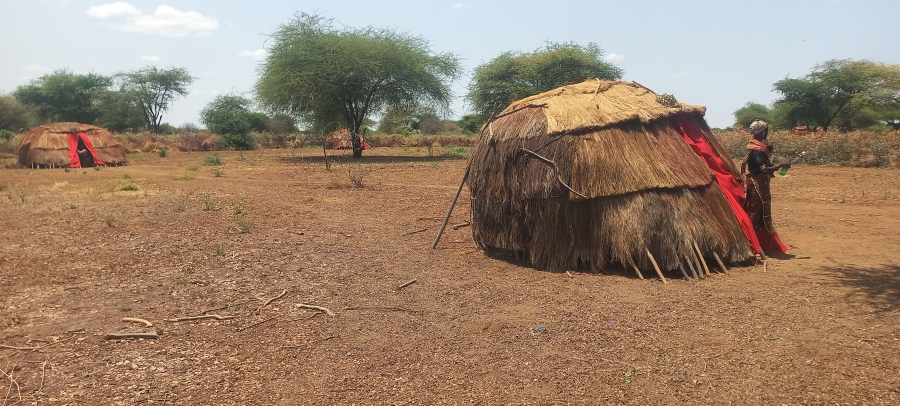 Some of the huts representing Rendille community's nine clans at the cultural village set up at Loglogo in Marsabit County. (Photo: Waweru Wairimu)
Some of the huts representing Rendille community's nine clans at the cultural village set up at Loglogo in Marsabit County. (Photo: Waweru Wairimu)
"Abandonment of cultural aspects such as language makes it hard to retain and safeguard intergenerational knowledge and wisdom," he said.
Original culture
He said while it was good to appreciate diverse cultures in Marsabit and Kenya at large, one should not abandon their original culture for another as none was superior to the other.
PPI Executive Director Margret Super said that the cultural village will act as both a resource and educational centre for local youths and Kenyans in efforts to protect the community's distinct cultural identity.
A botanical garden of medicinal herbs will be set up in the area for learning purposes.
"Exposure to other cultures and lifestyles especially among the youth has created a disconnect with their traditional cultures and this is what we seek to address," she said.
Margret further said the local community will earn income from the sessions that include a display of their art, demonstration of their knowledge by their skilled craftsmen as well as lessons on their history.
"We are also documenting the tangible aspects such as artefacts that will augment learning," she noted.
When he graced the commissioning of the cultural village, the Principal Secretary, State Department of Arid and Semi-Arid areas Harsama Kello implored the community to fully commercialise the initiative to uplift their livelihoods.
"Our women will be able to access income while they spearhead efforts to promote the culture," he said while asking the community to prepare proposals for funding to include other amenities such as lodges, a swimming pool and a hotel to leverage into the hospitality sector.
Promising to support the initiative, the PS further asked the Rendilles to coexist peacefully with other communities living in Marsabit saying intra-community conflicts were scaring away investors and denying the region development.
Saku MP Dido Raso hailed the initiative saying it had eased the burden on community leaders and elders tasked with ensuring the transmission of culture from one generation to another.
"It is a step in the right direction of diversification considering pastoralism which majority of the communities in Marsabit practice is no longer reliable due to effects of climate change," Raso said.
He further asked communities living in the county to appreciate each other's cultures which he said were unique in their own way.
Bernard Lolasho, a member of the Pastoralist Alliance for Resilience and Adaptation Across Nations (Paraan) appealed to the government to support minority communities to preserve and promote their endangered cultures.
"Lack of resources remains a major impediment for Indigenous communities' quest to safeguard their culture," he said.
Top Stories Today






